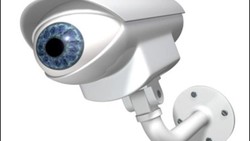More forced AI, more integrated cloud services, more failed patches causing data loss.
Oh, you meant the future and not this year so far? My bad.
People in large will keep using it because they’ve no clue what a computer is. They just recognise symbols and which order to click them.
The product keeps on getting worse.
People will get angry and look for political “solutions” to their own unwillingness to learn.
As a result all of networking and computing will be made worse, with lots of red tape, solidifying an oligarchy, penalizing the alternatives.
Just like how there were 1000s of car makers in the 20th century, but now only a handfull. Legislating cars to be shitty DRM-ed smartphones on wheels.
In the defense of end users, they got stuff to do and can’t be bothered to take the time which will make no obvious difference to what they need to do.
The average person can’t even describe how a toaster works, let alone anything even slightly more complicated.
And these users have
skilletsskill sets in other areas - I don’t expect an accountant to know how a computer works, any more than they expect me to understand accountancy or finance.I blame management that doesn’t listen to or hire qualified IT people. The average office worker has no say in what platforms or tools are used at a business.
Also in defense of end users, they are forced to use whatever OS their IT department provides.
The few users that would prefer Linux for instance, aren’t allowed to use it because it deviates from the company standard and makes things harder to maintain (security, backup, and so on).
they are forced to use whatever OS their IT department provides.
It’s also the other way around: we have linux machines at work, controllers for specific devices. A lot of people don’t want to open a manual it seems. They just submit support tickets, angrily, as they can’t figure out that the menu is in a different place.
which will make no obvious difference to what they need to do.
It would make a whole lot of difference. But it’s like learning math, or basic finance indeed. Sooo useful, improves your life tremendously, yet most people can’t be bothered.
Tragedy of the commons.
If they can use the internet in Windows and in Linux… How is there any real difference to the end user?
They aren’t saying Linux doesn’t have advantages. They’re saying those differences don’t matter for what most people do.
Another example, playing games. There’s no advantage in playing a game in Linux over Windows, or vice versa.
How is there any real difference to the end user?
For example many people can’t find their saved files anymore in windows, as it auto saves in some programs to onedrive. Yet some other programs can’t read from onedrive. That’s a real difference in usability. And ofcourse also in terms of invasion of privacy.
For example, my mother became unable to read her email, as outlook changed UI completely and unavoidably. Had she chosen to use better software that would not have happened. A real difference.
For example, when searching for a local program, microsoft now also serves ads in the search results. Many people fall for those ads, that also include scams. That’s a real problem you don’t have with better software.
The examples keep on going on. And the end users do complain about them, often. They pay so much money for a worse experience.
Losing market share to Linux.
enshittification
Well, the future is here now.
Things can always be shittier…
"My prediction… is pain " -Muhammad Ali
Trying to turn every computer into just a dummy terminal that accesses a cloud server, rather than using the local resources
you mean 365 cloud pc?
Yep, with no way to opt out
Cloud. Windows is going to be sold as remotely accessible virtual machine hosted on Azure. The change will first take place in government offices, then in companies, and finally (after people get used to it at work) among consumers.
Why would gov and enterprise like it? Because of:
- safety - all enterprise data will be stored on Azure servers and won’t ever leave it. It makes preventing data leakage so much easier
- maintenance - software updates can be applied even outside of working hours, Microsoft could launch VMs and update at any time
- ease of upgrade - need better specs? you don’t need to buy better hardware anymore, you just buy better subscription. Hardware won’t become obsolete anymore that quickly
Consumers will also like it. No need to pay hundreds of dollars for new GPU when you just want to play newly released game. Also, all your data accessible from anywhere in the world.
And why Microsoft would like it? Kinda obvious, it would be even harder for users to quit a subscription, they will be tied to ecosystem even more
We are basically already there with Windows 365. It’s the comeback of the thin-client and the main frame. Everything old is new again.
I agree with the first part but simplify the “why they’d do it”:
- it’s easier to choose with nice marketing
- corruption.
- being able to externalize IT.
As for the rest, from what I’ve seen:
- Web infrastructure relies on open source. Military critical OSs are a custom from open source. Security is best working from open source.
- You can pay the same maintenance fee for open source programmers for chasing your targets, leading to Ubuntu, opensuse, LibreOffice teams.
- upgrade is debatable. In the end i’d guess you’re more often better off with your hardware or national servers, but that’s related to security.
Consumers will like it, then enshitificaction. Also your data anywhere in the world.
Forget the cloud. What if the ad is the operating system? Windows 12 will be using a distributed architecture, running on top of global ad networks. Every advertisement medium (TV, radio, web, video) will include an x86 interpreter that runs Windows services (ARM support will come later).
The same tracking tech used to target you with that ad will be used to log you in to your Azure Copilot 365 OneDrive account, so you can access your files and applications seamlessly without having to remember a password or pin. When your smart toilet is showing you an ad for Draft Kings to earn your flush credit, you’ll be able to check your emails, connect with the fam, or ask Copilot for assistance.
Drink an activation soda to continue booting.
I think it’s days in home computers are numbered.
Most of the things an average person needs can be done through the web browser. You only need a Chromebook, phone or tablet.
Linux has suddenly become a viable option for gaming. This has been the one thing that kept many away from using Linux.
I don’t really see why anyone would want to use Windows for their home PC, other than familiarity. It doesn’t offer anything you can’t find better elsewhere.
I think they’re going to need to back pedal some ideas. Ideas that are “for your benefit” such as, your user folder linked to one drive (so you’ll always have a backup) is also a cash-grab (“oh, you only have 5 GB of space. We’ll sell you more!”). This needs to be opt-in.
Windows 7’s market share has surprisingly increased to about 9.61% in 2025. This rise is likely due to users hesitating to upgrade to Windows 11 as support for Windows 10 is ending.
You can say that’s only 10%, but how much is that in lost revenue?
your user folder linked to one drive (so you’ll always have a backup) is also a cash-grab
That’s actually illegal bundling behavior, something they wouldn’t dare do if Biden was still president and Lina Khan was still head of the FTC.
I think actually that the future of Windows won’t be so dire post Trump. There’s no way the pro-monopoly brain rot survives this admin, and people will soon start to realize that the billionaires, although easy targets, are just a symptom of lax regulation rather than the root cause of the enshitiffication apocalypse of the mid 2020s.
something they wouldn’t dare do if Biden was still president and Lina Khan was still head of the FTC
Pretty sure the user folder has been onedrive for ages, including during Biden’s presidency.
Not everything is about politics.
They were only in office for 4 years, and while they did a lot they couldn’t do everything.
Not everything is about politics.
No, but antitrust enforcement obviously is
Barebones OS with ads and a premium subscription for anything that makes it remotely useful
Corps will keep using it, but I feel like a sizeable group will find alternatives like Linux, MacOS and even Chrome OS as Chromebook kids age out of school.
Microsoft pushes cloud and AI with increasingly negative side-effects. Eventually, EU regulation steps in to require offline-capable OS with fair and obvious choice. Microsoft tries to argue security, but ultimately fails.
Microsoft continues to push and connect their services as one, with synergy effects. Eventually EU regulation and prosecution steps in, requiring a neutral OS that must not pre-install software or point to other products in OS settings and apps, etc. Integrations must be openly standardized first, before implementing their own.
Despite all this, and despite a move from EU and EU-national institutions to sovereignty through shared open source solutions, Microsoft retains their strong/prevalent market position because the market as a whole is not as strategic and concerned, and Microsoft products like office, onedrive, Teams, and their other business software and services remain a predominant and grab-first choice, and the security promise of big enterprise software, battle-tested, with strong established auth etc remains a big selling point for them.
Thin client for their online services. At least that’s what MS wants.
There have been multiple rumours of Windows 12 being basically EdgeOS and just a gateway to the web with all apps and compute in the cloud. Some articles I’ve read and videocasts I’ve watched say “Microsoft have realised it’s not about the hardware, but the software and selling subscriptions and services”. So, from my very limited and uneducated view, windows 12 would be the perfect vessel for doing just that. But they can only do it if there is good internet in the majority of the world, so my prediction is windows 12 will come in ~2032 or so.









